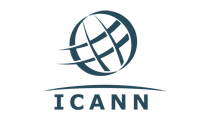This website uses cookies so that we can provide you with the best user experience possible. Cookie information is stored in your browser and performs functions such as recognising you when you return to our website and helping our team to understand which sections of the website you find most interesting and useful.
Business News Digital
ICAAN says it won’t take a more pro-active anti-piracy role
By Chris Cooke | Published on Monday 15 June 2015

With the entertainment industry’s anti-piracy bods increasingly going after the domain names of piracy websites, the global organisation that oversees the domain name system has distanced itself from having any responsibility for policing how domains are used.
As previously reported, the many domain name registries which manage different top level domains, and the registrars that most people use to actually register a domain, all have their own policies regarding what to do about piracy operations.
Using a domain name for a copyright infringing operation usually breaches the terms and conditions of registries and registrars, but while some are willing to block sites at the say so of copyright owners or bodies like the City Of London Police’s IP Crime Unit, others insist on a court injunction before taking any action. Needless to say, the operators of piracy sites have learned which registries have the latter policy.
Given the different approaches around the world, some in the anti-piracy game had hoped that global top level domain overseer ICANN would ramp up its own piracy rules, putting more pressure on those down the chain. But, according to Torrentfreak, bosses at the not-for-profit organisation have no intention of doing this, and are getting rather annoyed with being repeatedly asked.
ICANN’s Chief Contract Compliance Officer Allen Grogan told Torrentfreak: “ICANN has no role in policing content – it’s entirely out of our scope. Our mission is to co-ordinate, at the overall level, the global internet’s systems of unique identifiers, and in particular, to ensure the stable and secure operation of the those unique identifiers. ICANN was never granted, nor was it ever intended that ICANN be granted, the authority to act as a regulator of internet content”.
So there you go. Adds Grogan, speaking to the copyright industries and their trade bodies: “It’s important people understand this and direct their content complaints to the institutions that are already in place to handle these issues, such as law enforcement, regulatory agencies and judicial systems”.





